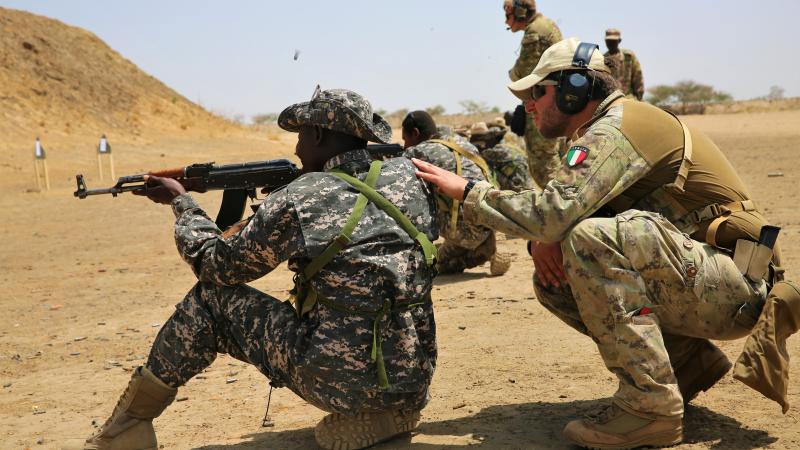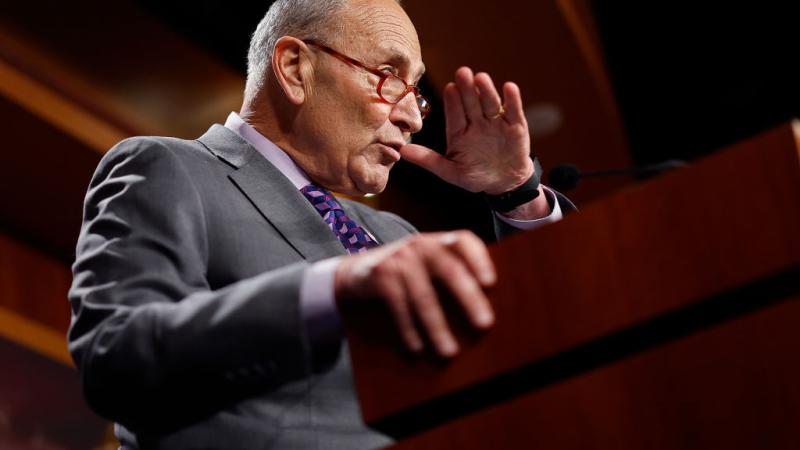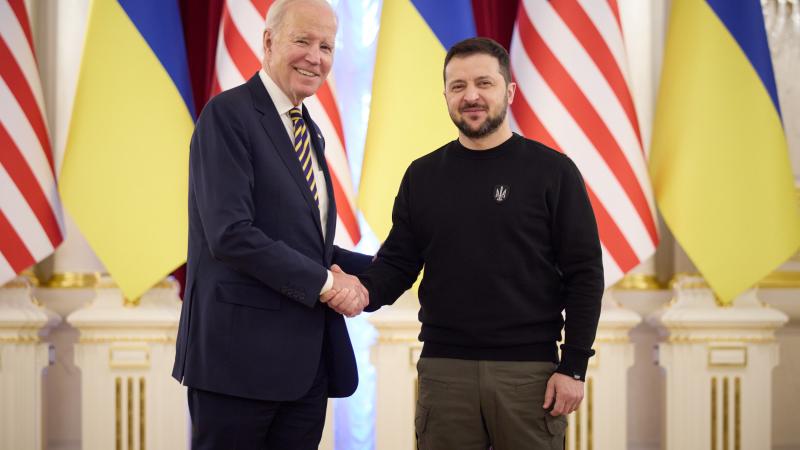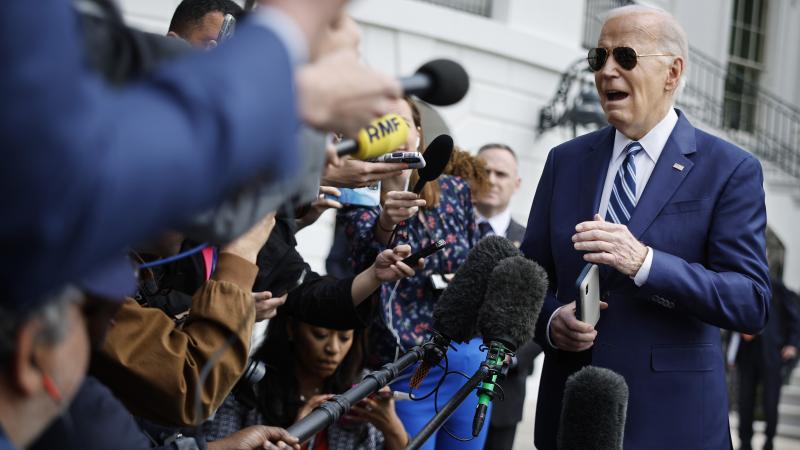Russian victory in looming battle for Donbas 'not inevitable,' defense officials say
"There's a real possibility that this could go on for a while because both sides can be fairly dug in here, and to be dug in fairly well," according to a senior defense official.
The emerging battle for Donbas in eastern Ukraine most likely will be prolonged, but the outcome cannot be predicted with certainty, according to Western defense experts.
Even Russia's seemingly certain victory over the besieged port city of Mariupol has not yet been determined, Pentagon officials said. Two senior defense officials gave their assessments on Tuesday while talking on background about the war to reporters at the Pentagon.
"People speak about this as if it's inevitable that Mariupol's going to fall, that it's inevitable that Donbas will be taken by the Russians," a senior defense official said. "We don't see it that way, and we're doing everything we can to make sure that it's not inevitable."
Ukrainian President Volodymyr Zelensky announced in a Monday video address that the much-anticipated battle had commenced in eastern Ukraine.
"It can now be stated that Russian troops have begun the battle for Donbas, for which they have been preparing for a long time," Zelensky said. "A very large part of the entire Russian army is now focused on this offensive."
Russian President Vladimir Putin on Feb. 24 ordered a full-scale invasion of Ukraine, aiming to "demilitarize" the country within a few days. Instead, the ensuing weeks brought significant military losses to Russia in the face of fierce resistance from Ukraine. Soldiers and citizens alike joined the war effort, holding fast while Moscow eventually ordered its troops to leave the capital city of Kyiv.
Russian President Vladimir Putin redirected his forces into the Donbas region, where Russian and Ukrainian troops have kept up a low-level fight for some eight years.
The newly reinvigorated battle for Donbas has much to favor Russia, observers have noted. Among the factors is that Russian troops will not face the problems with supply lines that left many troops hungry, thirsty, and cold in the Ukrainian interior.
"Certainly, because of the geography, the supply lines will be of shorter length and easier for the Russians to manage because that Donbas region borders Russia," the senior defense official said. "So they will have a shorter tooth-to-tail ratio, if you will."
The ratio alone doesn't guarantee success, however, according to the Pentagon.
"It doesn't mean that they have overcome all their logistics and sustainment problems," the senior defense official said. "We have seen them try to learn from the mistakes they made."
Russian troops are trying to learn particularly in terms of the supply lines, the official said. "But it doesn't mean we believe they fixed all their problems, or that they're still not going to have trouble with potential sustainment going forward."
The forces going into Donbas will face problems, according to the Washington-based Institute for the Study of War.
"Russian forces withdrawn from around Kyiv and going back to fight in Donbas have, at best, been patched up and filled out with soldiers from other damaged units, and the Russian military has few, if any, cohesive units not previously deployed to Ukraine to funnel into new operations," the group wrote in an April 18 assessment.
"Frequent reports of disastrously low Russian morale and continuing logistics challenges indicate the effective combat power of Russian units in eastern Ukraine is a fraction of their on-paper strength in numbers of battalion tactical groups."
The group foresees at best limited success for Russia in the coming fight through attrition.
"The Russian offensive in the east is unlikely to be dramatically more successful than previous Russian offensives, but Russian forces may be able to wear down Ukrainian defenders or achieve limited gains," the group wrote.
The region is well known to Ukraine, giving Zelensky's forces a home field advantage, according to the senior defense official.
"It's their country, and they've been fighting over this area for eight years, so they know the terrain," the official said. "They have good interior lines of their own, and they're using them."
Ukraine has a strong ability to replenish stocks and soldiers alike, the official said.
The varying factors add up to a potentially protracted conflict.
"There's a real possibility that this could go on for a while because both sides can be fairly dug in here, and to be dug in fairly well," the official said.
Moscow has positioned itself to claim victory even amid loss, predicting on Tuesday that opponents will present a false view of the battle.
"I am certain that our army will cope with this task, but after that the truth about their victory will have to be defended," said Sergey Novikov, an official for Putin's directorate for special projects.
Russia has not secured "any major territorial gains" since launching the Feb. 24 invasion, according to the Institute for the Study of War.
















